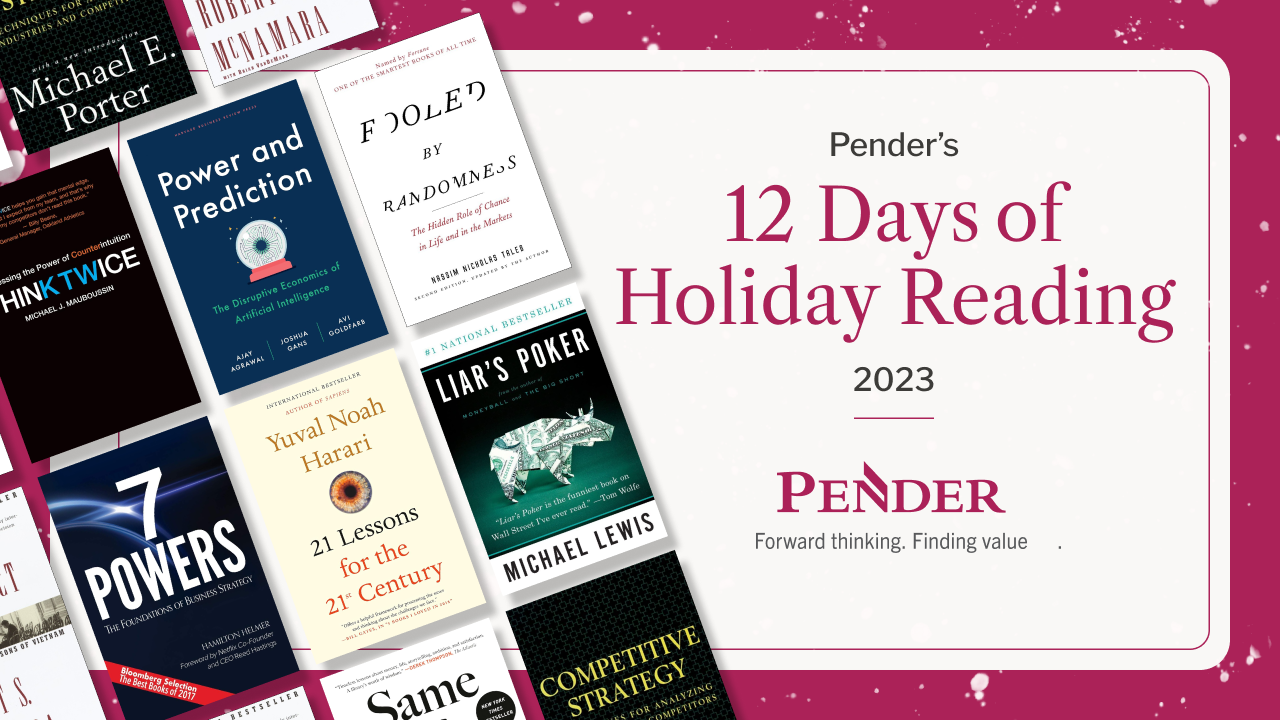PenderFund’s 12 Days of Holiday Reading and Listening is here!
This year, the Pender Investment Team reflects on the recent passing of Charlie Munger, one of the industry’s greats, who said,
“Spend each day trying to be a little wiser than you were when you woke up. Day-by-day, and at the end of the day, if you live long enough, like most people, you will get out of life what you deserve.”
Munger was a beacon of wisdom for many investors, and especially for members of our investment team.
We hope you find something here among the books and podcasts we have enjoyed this year that will make you a little wiser in 2024. Warm wishes from us.
R.I.P Charlie.
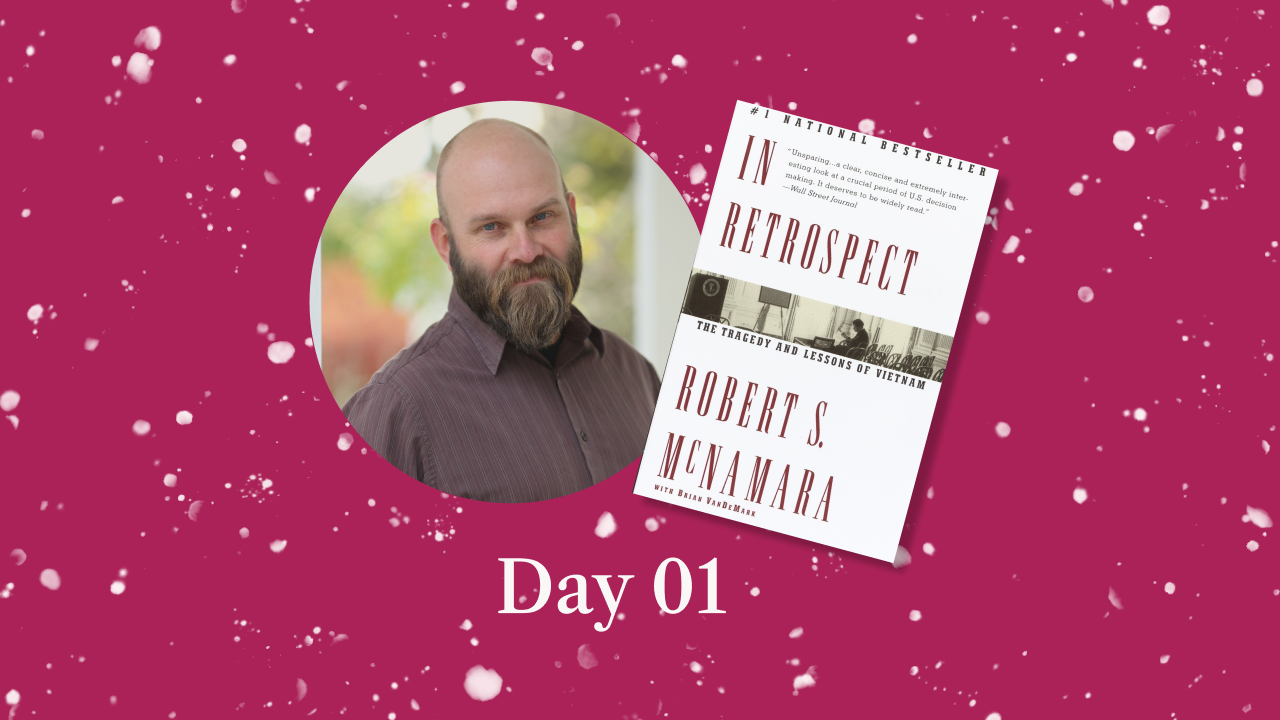 What book inspired you this year?
What book inspired you this year?
It’s not current but it is very relevant to today’s headlines. It’s “In Retrospect: The Tragedy and Lessons of Vietnam” by Robert McNamara.
This book was also turned into the award-winning film “Fog of War”.
What is the scope of the book?
Robert McNamara, the former U.S. Secretary of Defense during the Vietnam War, is one of the most controversial figures in American history. Through the lens of hindsight, he provides an unusually candid reflection on the Vietnam War. What amazes me about McNamara is his ability to re-examine his reasoning and admit his failings. Such admissions of fallibility are very rare after a person reaches such a highly elevated position. McNamara admits the mistakes made by the U.S. government, acknowledging that the war was a tragic error, fueled by misjudgement and flawed policies. The book serves as a cautionary tale and provides valuable insights for future policymakers, urging them to approach decisions of war and peace with humility, wisdom, and a deeper understanding of the complexities involved.
Why do you recommend it?
The world is facing the unfolding tragedies from two major regional wars—one in Europe and the other in the Middle East. Contagion fears are growing. Within this turmoil, the lessons learned by McNamara from a previous disastrous conflict make the book worth a read, or a re-read.
His insights, captured in 11 profound lessons, resonate as strongly today as they did amidst the tumult of the Vietnam War. The echoes of misjudgement and hubris, the pitfalls of limited understanding, the perilous risks of escalation, and the haunting reminder of human costs—all these themes are just as relevant today. McNamara delves deep, unravelling the intricate threads of nationalism, national identity, and myriad other lessons. Tinged with humility, historical context, and painful lessons learned by a man intimately acquainted with a previous tragedy, nothing has made more of an impact on my thinking about this topic than this book.
Upon reflection, readers may also see that many of the lessons in the book are universal, and beyond the scope of war itself. The lessons apply to many other fields where the cognitive mistakes can be costly, and this includes investing.
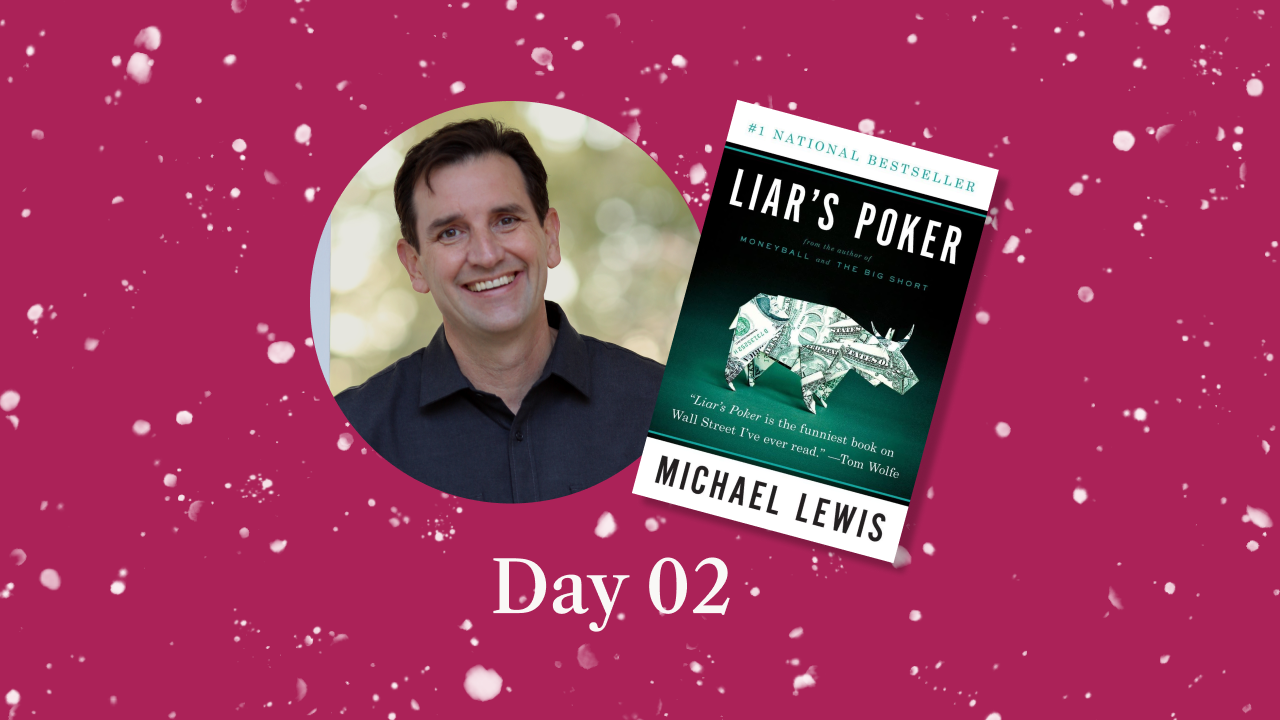 What book inspired you this year?
What book inspired you this year?
Recently, as I was looking for an entertaining way to pass the time on a longer flight, I stumbled across a copy of Michael Lewis’ classic Wall Street memoir, Liar’s Poker. While I had read the book many years ago as a university student, it was particularly enjoyable to revisit with the experience in recent years at the helm of the Pender Corporate Bond Fund.
What is it about?
It’s about Lewis’ entry into Salomon Brothers as a trainee in the 1980s. He introduces the reader to the eccentric characters and the intense atmosphere of the bond trading floor. The title, Liar’s Poker, refers to a high stakes gambling game that became a metaphor for the risky and deceptive nature of bond trading. The narrative delves into the author’s personal experiences, capturing the outrageous antics and ruthless competition among traders. A pivotal moment in the book is the author’s involvement in the mortgage bond market, a domain marked by complexity and chaos. He vividly describes the absurdity where traders engage in reckless speculation and take advantage of clients. The narrative also highlights the dysfunctional management and corporate culture at Salomon Brothers, emphasizing the disregard for ethical considerations in the pursuit of profits.
Why do you recommend it?
Viewed from today’s perspective, Liar’s Poker provides a wonderful history of life on Wall Street in a bygone era. However, it also presents timeless moral instruction about the temptations of power and the consequences that arise when one betrays the trust of clients. I would highly recommend Liar’s Poker to an aspiring financial professional or to anyone with a passion for the markets.
 What did you like about the book?
What did you like about the book?
This book is an intimate exploration of the life of a phenomenal consumer products creator and visionary. It provides insight into the inner workings of the most valuable company today [Apple], from its nascent days in Jobs’ parents’ garage to the creation of the Macintosh, iPod, iPhone and more. Themes such as Jobs’ personal and professional relationships, his embodiment of the integrated approach to consumer products, and the intense focus on details that most people would ignore, are woven throughout the book for readers to better understand his character.
Why do you recommend it?
I highly recommend this book to anyone who is seeking to understand what it takes to create a durable business and an empowering brand. The book provides insights into leadership but from an approach that many may disagree with. Yet, Jobs’ leadership style worked well within the context of bringing out the best in others and fostering a culture of innovation and excellence. More broadly, this book sheds light on a relatively recent sea change in the technology sector [personal computing] which is useful when thinking about how our world may further change in the century ahead through technological innovation.
 What is the podcast about?
What is the podcast about?
It is essentially a book review. Each week David reads a biography of an entrepreneur and discusses what he has learned. There are so many great episodes but one of my favourites is Episode #246: Mark Leonard’s Shareholder Letters. Mark Leonard is the founder and president of Constellation Software, and he has built this very successful company, yet he keeps a very low profile. Through his letters to shareholders, he shares his vision, style of leadership, and approach to capital allocation.
Why did you recommend David’s podcast?
David has so much energy—listening to him is extremely inspirational. He studies and discusses entrepreneurs in business, sports, and many other industries. Because of this wide breadth, there will be something here for anyone who wants to learn lessons from the entrepreneurs who came before us!
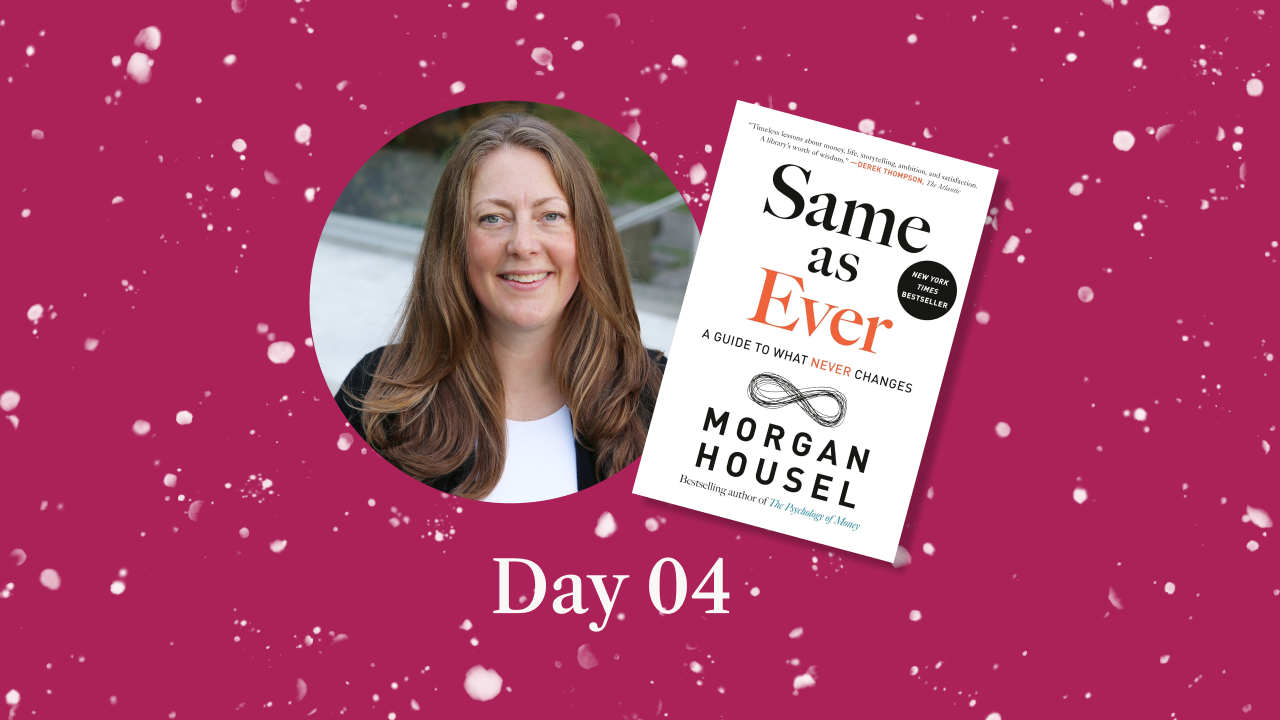 What is the book about?
What is the book about?
As the most consequential events of the past have generally been things that few saw coming, Housel recommends focusing on the things that tend to stay the same over time. Each chapter covers a different theme, including risk, incentives, and the power of compounding, for example. The author refers to people like Charlie Munger, James Grant, Nassim Taleb and Daniel Kahneman to illustrate ideas. The central theme is summarized with a story involving Jeff Bezos. Bezos is often asked about what he thinks will change in the next 10 years but almost never about what is not going to change, which is the more important question. He says, “it’s impossible to imagine a future where Amazon customers don’t want low prices and fast shipping.”
Why do you recommend the book?
Housel’s book is to-the-point, and is full of entertaining stories. It illustrates valuable lessons about navigating short-run problems to enjoy long-term growth. “Planning like a pessimist and dreaming like an optimist,” is the sweet spot he recommends.
Aman Budhwar recommends
Power and Prediction: The Disruptive Economics of Artificial Intelligence by Ajay Agrawal, Joshua Gans, and Avi Goldfarb
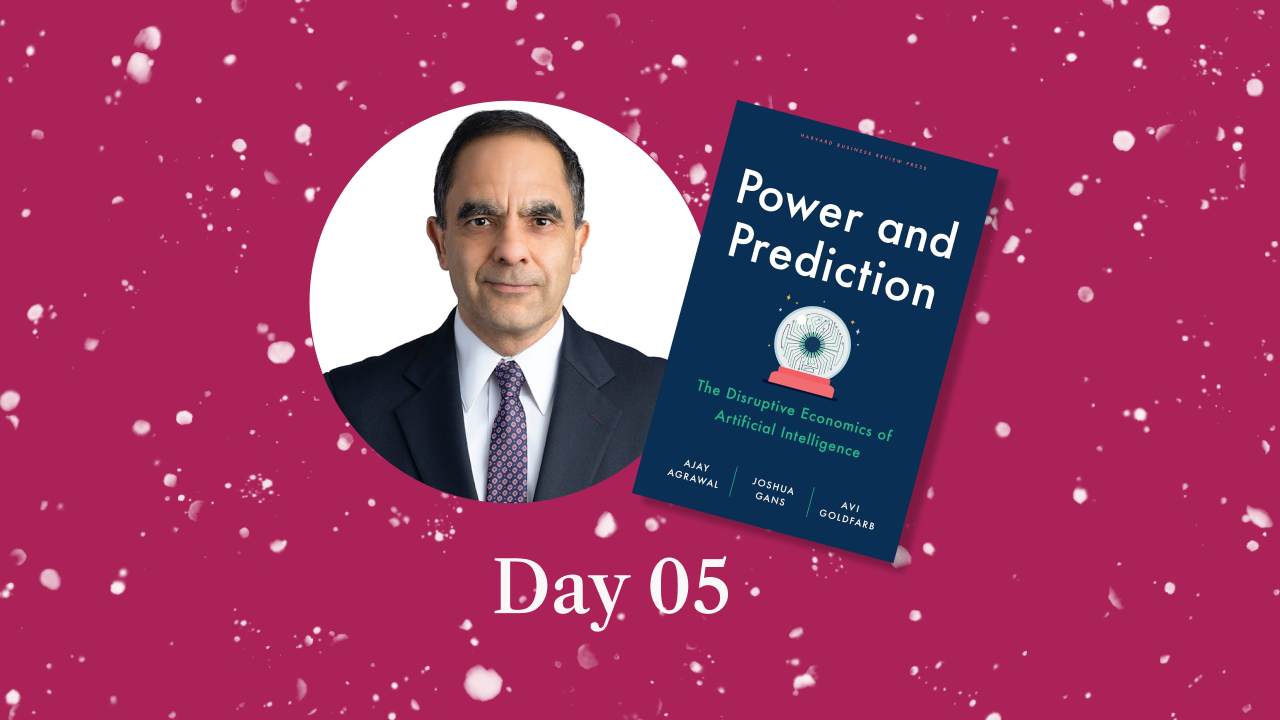 What is the book about?
What is the book about?
The book is about the rise of AI and the resulting shift in decision-making from humans to machines that will increase the speed and accuracy of decisions.
Why do you recommend it?
The book predicts that AI-driven, system-level innovation will cause disruption. It shows how businesses can leverage opportunities while at the same time protect their existing market positions. At Pender, we use this as a guide in our conversations with management teams to try to predict winners and losers from the upcoming disruption.
 What is it about?
What is it about?
The Acquired podcast tells stories and strategies of great companies. The episodes are long, often three hours, and provide in-depth and insightful analysis of these companies based on extensive research by the co-hosts. Some of my favourite episodes are on LVMH, Costco, and Nvidia.
Why do you recommend it?
For anyone who is interested in business and in investing, this podcast is for you. The co-hosts break down any business in a way that feels ‘behind-the-scenes’ with little-known facts and with a deep and balanced analysis of the firm’s competitive advantages, strategies, and other key elements. The podcast is not only educational but it’s entertaining. Ben and David make any business understandable and relatable to a wide range of audiences.
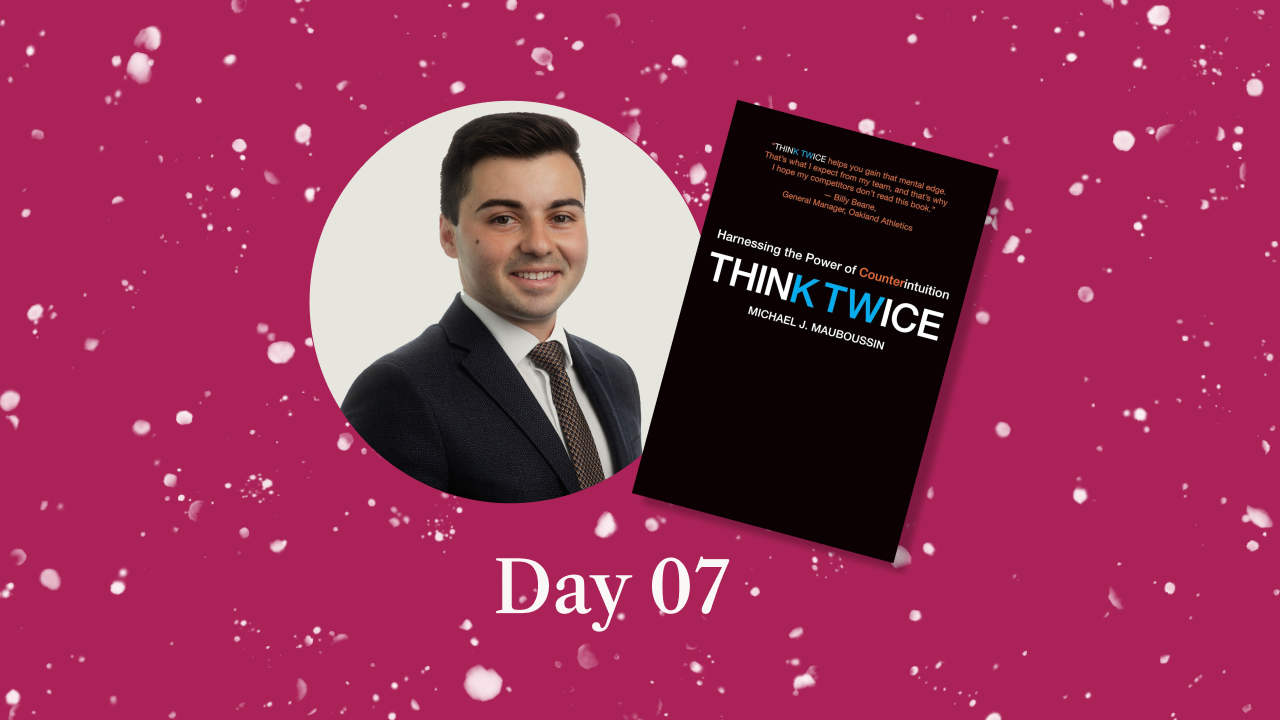 Why did you choose it?
Why did you choose it?
Although this book is written with investing in mind, it does not give practical tools that you can plug-and-play into your own investment process. Instead, it gives the reader the framework for the kind of thinking which can aid in counteracting some common biases investors and people at large face when making decisions.
Why do you recommend it?
The book offers a framework for thinking. Mauboussin discusses how success is a by-product of luck and skill. Luck can provide periodic volatility, but over long periods luck reverts to the mean, at which point skill will become the deciding factor for relative success in the long term.
 What is it about?
What is it about?
Philosophize This! is a podcast about philosophy. The host, Stephen West, discusses philosophical concepts and thinkers in a manner accessible to non-specialists. Running since 2013, most episodes hone in on a single philosopher and his or her key ideas. Recent episodes, however, have begun to delve into contemporary questions in philosophy of the mind and neuroscience sparked by the rise of artificial intelligence.
Why do you recommend it?
As a former philosophy major, I am naturally drawn to the topic and find West to be an insightful, articulate and approachable commentator with a flair for metaphor. The program’s recent focus on the intersection of philosophy and artificial intelligence represents a topic that is not only important to society in general but is also highly relevant to my work as a technology investor. I’m looking forward to more episodes on this topic.
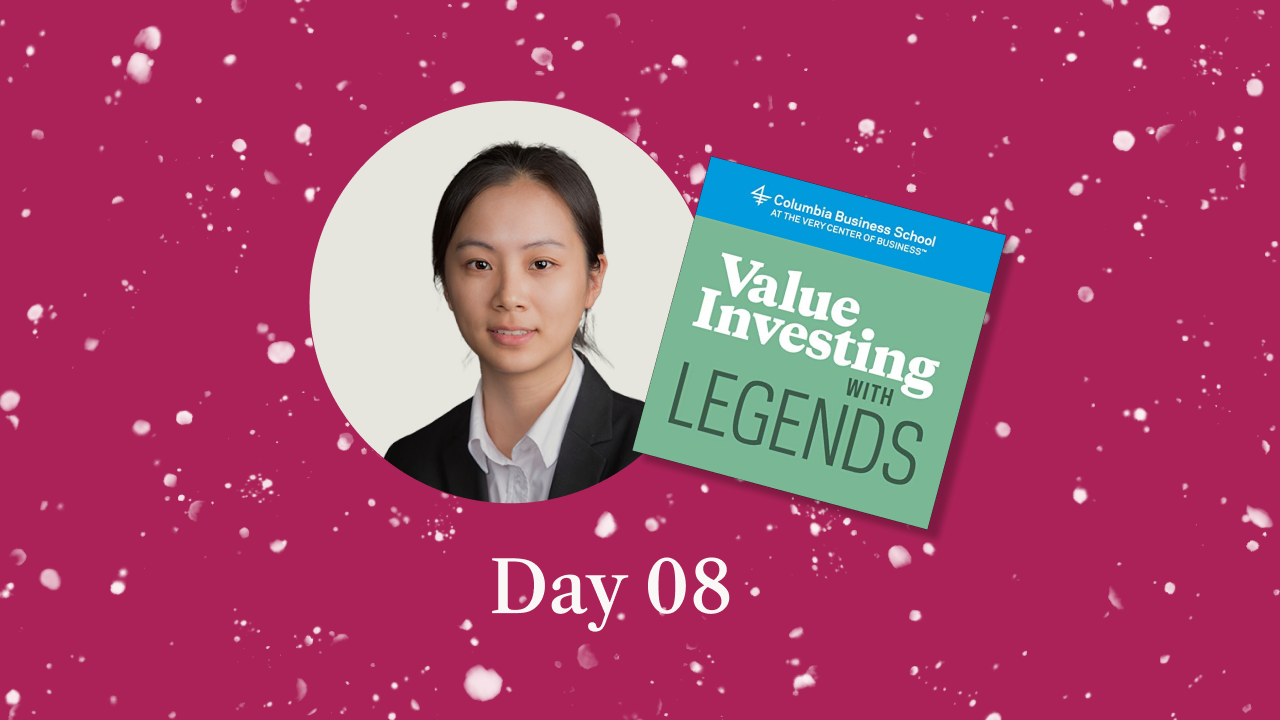 What is it about?
What is it about?
The podcast is hosted by professors from Columbia Business School where “value investing” as a strategy was developed in the 1920s. The show invites some of the world’s greatest investors as guest speakers to talk about their investment methodologies, career development, and how the investment field has changed over time. My favourite episode is the one with the high-yield investor Sheldon Stone. Mr. Stone is a long-term partner of Howard Marks at Oaktree Capital. He discusses liquidity, covenants, and capital availability in the high-yield credit market as well as his credit scoring matrix. One of the most interesting points he makes is that he finds the flexibility of financial support from partners is vitally important for companies to stay alive in tough periods.
Why do you recommend this podcast?
A great aspect of this podcast is that the guests are veteran investors who have proven their success at navigating downturns in multiple market cycles. It’s valuable for investors today to understand how the market evolved historically and the logic behind that. This will drive holistic insights into current and future market environments. History repeats itself in one way or another!
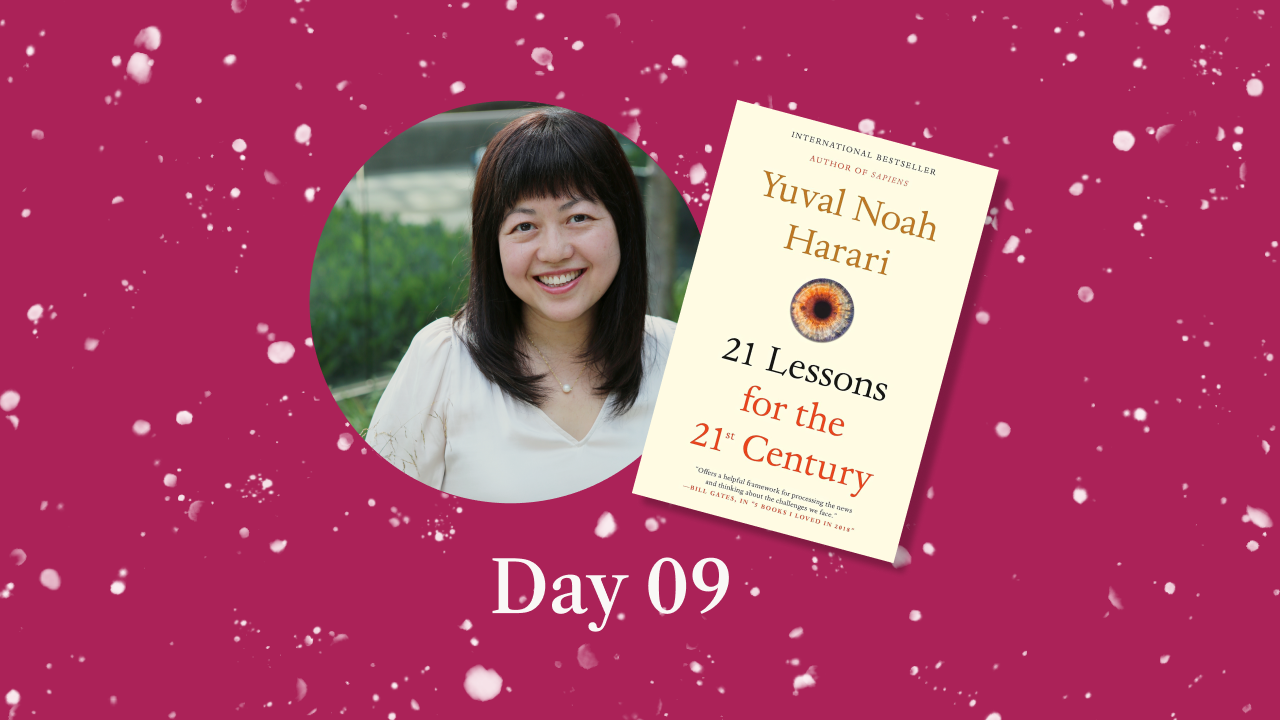 What is it about?
What is it about?
In his first book, Sapiens: A Brief History of Humankind, Harari focused on humankind’s past; in his second book, Homo Deus: A Brief History of Tomorrow, he delved into the present and future. In this book, he explores 21 of what he considers to be humankind’s greatest challenges including religion, terrorism, immigration, justice, and civilization as a whole.
Why do you recommend his book?
These are challenging times: pandemic, wars, economic hurdles. Like many, I wonder, ‘What is happening in the world today and what is the deeper meaning behind these events? As individuals, how can we navigate them and what should we teach our children?’
Harari does not provide answers to every question. Instead, the book is an exploration of “what it means to be human in an age of bewilderment”. As he writes: “We are now living in an age of information explosion…the last thing people need is more information. What they really need is somebody to arrange all the bits of information into a meaningful picture—and this is what I try to do.”
He does a great job of doing so in this book. I’m impressed by his ability to condense large, complex issues into accessible and thought-provoking discussions. You may not necessarily agree with him, but the book is a start to thinking about these issues.
The main recommendation Harari gives at the end of the book is on meditation, something he does for two hours daily. “It is easier to act and cooperate effectively when you understand the human mind, understand your own mind, and understand how to deal with your inner fears, biases and complexes.”
From my personal experience, I couldn’t agree more. Meditation helps clear my mind and to feel calm. I highly recommend practicing it every day, even for only 20 minutes!
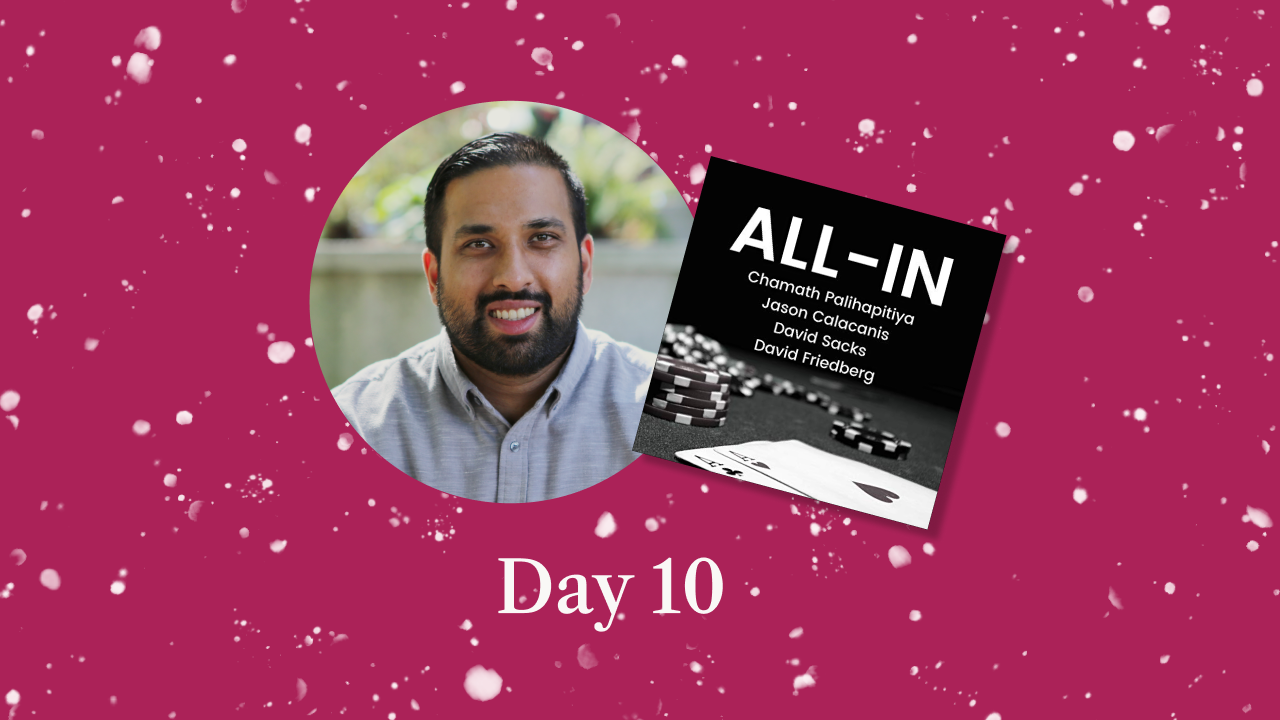 Name a podcast that inspired you this year.
Name a podcast that inspired you this year.
It is All-In with Chamath, Jason, Sacks & Friedberg, a tech-focused podcast from four venture capitalists, poker players, and ‘besties’. They also host the All-In Summit, a conference featuring a wide range of speakers covering topics spanning technology, markets, economy, science, politics, and society.
Do you have a favourite episode?
Bill Gurley is the general partner at Benchmark, a Silicon Valley venture capital firm. His presentation at the All-In Summit 2023 on regulatory capture in the US was engaging, thoughtful, and impactful; it was the best presentation I’ve listened to all year. Gurley articulated how the current US political system is set up to enable large industry incumbents to influence regulators and the rules which can hinder small firms and new entrants, who may have superior products or services, from innovation and growth.
Why do you recommend All-In?
If you can get past the biases and, in some cases, the egos of the co-hosts, who are very successful in the venture capital space, they offer great insights on the technology sector, technological innovation, and private and public markets.
Meryeme Lahmami recommends
Fooled by Randomness: The Hidden Role of Chance in Life and in the Markets by Nassim Nicholas Taleb
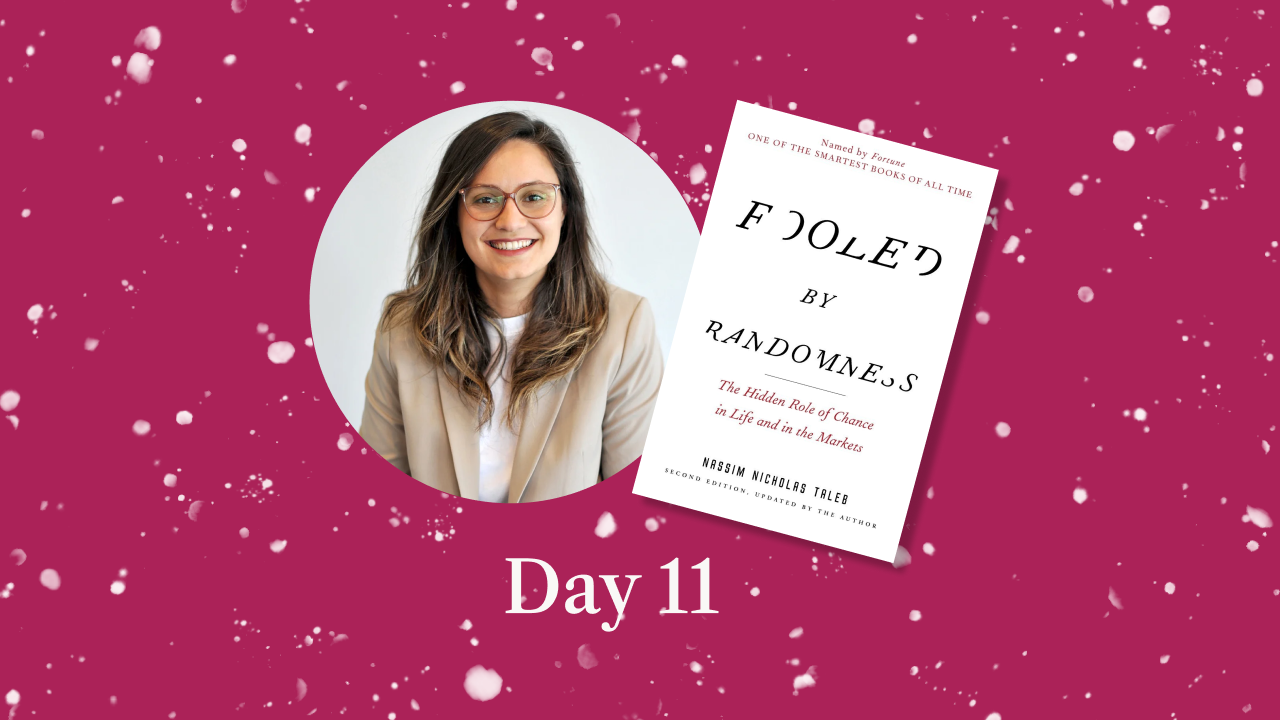 What is it about?
What is it about?
It is a captivating exploration of the role randomness and luck play in our lives, challenging conventional notions of success and skill. Taleb introduces concepts like Black Swan events and survivorship bias, encouraging readers to accept the unknown and understand how unpredictable things can affect decision-making, especially in areas such as finance and investing.
Why did you recommend the book?
In the investing world, we often believe that through careful research and vigilant monitoring, we can exert a certain degree of control over the outcomes of our decisions. The prevailing notion is that success is a by-product of skill and experience. However, the book challenges this belief. It proposes that success in financial markets is predominantly influenced by luck. Taleb introduces examples and ideas that question many assumptions, such as the significance we attach to track records, the questionable link between past and future success, the tendency to overestimate the accuracy of data and the trap of survivorship bias where the focus is only on winners, among others.
His ideas may stir controversy but seeking different views is essential for intellectual growth. Taleb’s contrarian notions spark critical thinking and can foster meaningful discussions, spurring individuals to form their own opinions on the efficacy of his ideas. I thought the book was refreshing as it encourages a diverse and open-minded approach to exploring —and challenging—established beliefs.
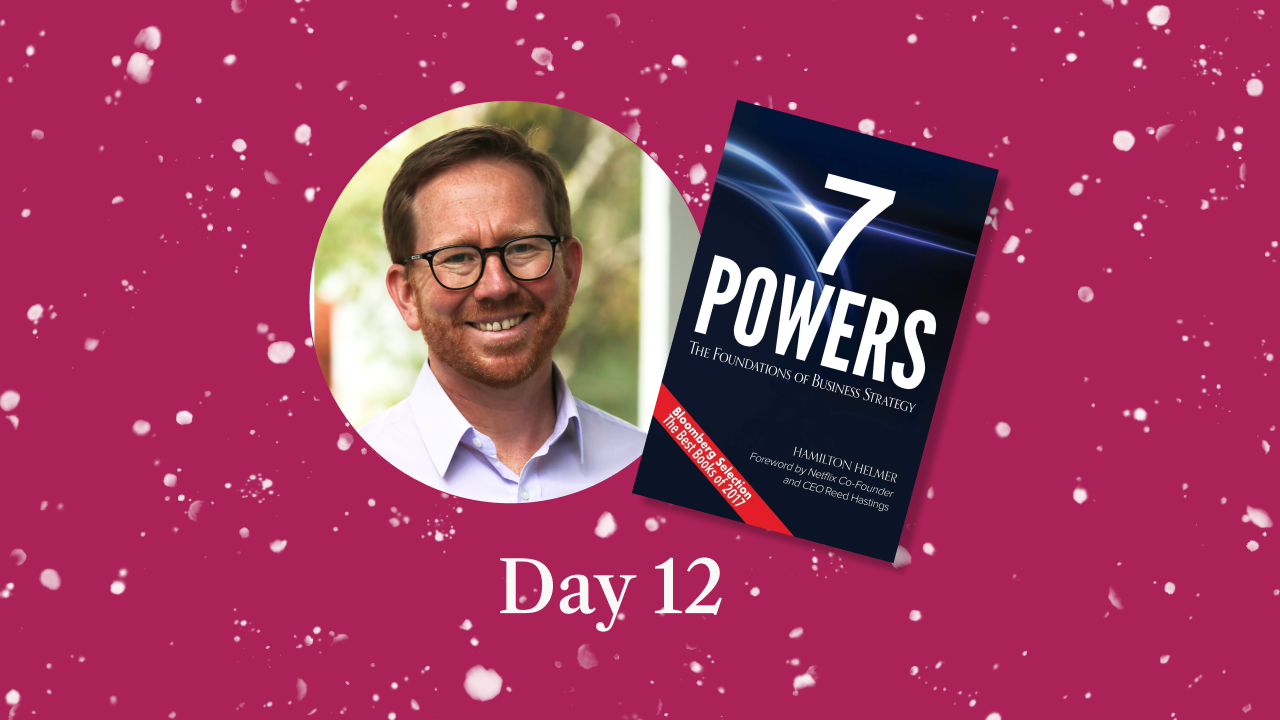 What is the book about?
What is the book about?
It is a strategy book that builds on Michael Porter’s book Competitive Advantage and the competitive advantages that a technology-based business can have.
Why do you recommend it?
Many technology companies came public in the last few years. At Pender, one of our most fertile sources of investment opportunities comes from identifying which of these companies are high quality—and which are not. Being able to recognize the businesses which have great strategies and competitive advantages allows us to identify the potential winners among this group before other investors do.
Sign Up To Our Newsletter
Stay Connected
Join our online community and receive a monthly round up of new blog posts, commentaries, podcasts, media coverage and more.
